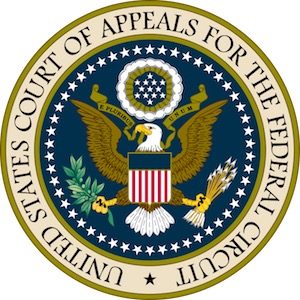 Recently, the United States Court of Appeals for the Federal Circuit issued a decision in BASCOM Global Internet Services, Inc. v. AT&T Mobility LLC. Writing the opinion for the majority was Judge Raymond Chen, who also authored the Court’s decision in DDR Holdings, which is one of the few cases to similarly find software patent claims to be patent eligible. Joining Chen on the panel were Judges O’Malley and Newman, with Judge Newman concurring and writing separately.
Recently, the United States Court of Appeals for the Federal Circuit issued a decision in BASCOM Global Internet Services, Inc. v. AT&T Mobility LLC. Writing the opinion for the majority was Judge Raymond Chen, who also authored the Court’s decision in DDR Holdings, which is one of the few cases to similarly find software patent claims to be patent eligible. Joining Chen on the panel were Judges O’Malley and Newman, with Judge Newman concurring and writing separately.
In this case, the Federal Circuit agreed with the district court that the filtering of content is an abstract idea because “it is a long-standing, well-known method of organizing human behavior, similar to concepts previously found to be abstract.” However, the Federal Circuit ruled that the claims did add significantly more and, therefore, the claims are patent eligible.
The Invention
The invention described in U.S. Patent No. 5,987,606, relates to a method and system for content filtering information retrieved from an Internet computer network. The patent explains that the advantages of the invention are found in the combination of previously known filtering tools in a manner that avoids their known drawbacks. The claimed filtering system avoids being “modified or thwarted by a computer literate end-user,” and avoids being installed on and dependent on “individual end-user hardware and operating systems” or “tied to a single local area network or a local server platform” by installing the filter at the ISP server. Thus, the claimed invention is able to provide individually customizable filtering at the remote ISP server by taking advantage of the technical capability of certain communication networks.
The claims of the ’606 patent generally recite a system for filtering Internet content. The claimed filtering system is located on a remote ISP server that associates each network account with (1) one or more filtering schemes and (2) at least one set of filtering elements from a plurality of sets of filtering elements, thereby allowing individual network accounts to customize the filtering of Internet traffic associated with the account.
Conflating Eligibility with Obviousness
Perhaps one of the most significant aspects of the Federal Circuit decision in BASCOM is that the Court explained that the district court’s analysis conflated obviousness with patent eligibility.
“The district court’s analysis in this case, however, looks similar to an obviousness analysis under 35 U.S.C. §103,” explained Judge Chen in the decision. This is problematic because when an obviousness analysis is undertaken under 101 it is done so without any of the protections or limitations found within the vast body of 103 case law. In other words, when obviousness is conflated with patent eligibility, the test becomes even more subjective and is wholly without boundaries.
“The inventive concept inquiry requires more than recognizing that each claim element, by itself, was known in the art,” Chen explained.
Of Particular Note
In the majority decision, Chen went to great lengths to explain that the Court was giving all inferences to the nonmoving party (i.e., the patentee). In other areas of federal litigation, this would not be noteworthy simply because that is what the law commands. In the patent sphere, however, the patent owner seems to rarely, if ever, be afforded even the most basic procedural rights available to other litigants.
Newman Concurrence
In a concurring opinion, Judge Newman wrote that she sees no good reason why district courts should, or must, start cases by determining whether patent claims are patent eligible. Newman sharply criticized (although not as sharply as she can criticize at times) the practice of piecemeal litigation. Judge Newman explained: “Initial determination of eligibility often does not resolve patentability, whereas initial determination of patentability issues always resolves or moots eligibility.”
Tags: CAFC, Federal Circuit, patent, Patent eligibility, patents, software patent, software patentability, software patents




You share in the PLI Practice Center community, so we just ask that you keep things civil. Leave out the personal attacks. Do not use profanity, ethnic or racial slurs, or take shots at anyone's sexual orientation or religion. If you can't be nice, we reserve the right to remove your material and ban users who violate our Terms of Service.